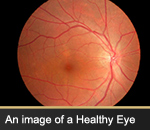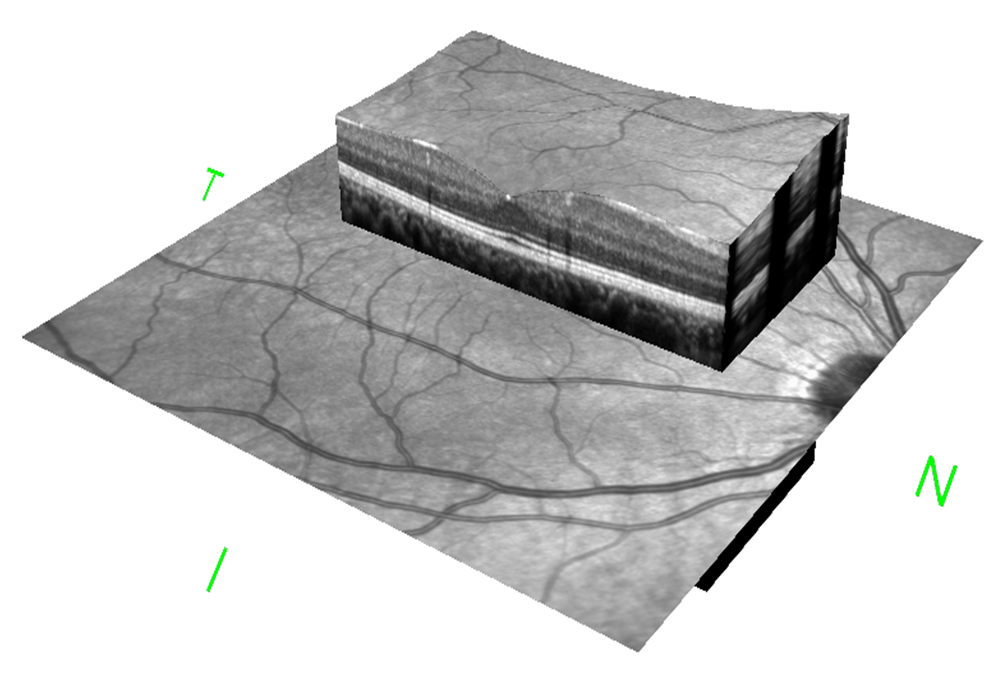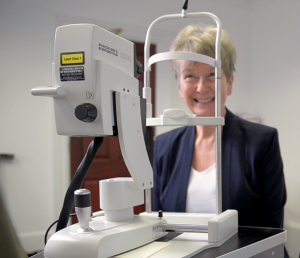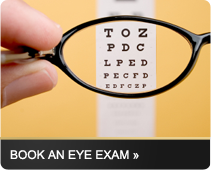 At Cargills our qualified optometrists will spend time with you establishing the reason for your visit, your visual needs and requirements. Do you use computers all day, are you a committed reader or have watery eyes? They will use modern equipment and their experience to assess the health of your eyes, calculate the power of your prescription, ensure the muscle comfort of your eyes and then explain the findings to you answering any questions you may have, before discussing any recommendations with you.
At Cargills our qualified optometrists will spend time with you establishing the reason for your visit, your visual needs and requirements. Do you use computers all day, are you a committed reader or have watery eyes? They will use modern equipment and their experience to assess the health of your eyes, calculate the power of your prescription, ensure the muscle comfort of your eyes and then explain the findings to you answering any questions you may have, before discussing any recommendations with you.
We want you to understand the tests you are receiving and know their results so you are fully informed about your own eyesight.
Retinal Photography is available at all our practices for a more detailed examination of your eyes, learn more here.
OCT (Ocular Coherence Tomagraphy) is the future of retinal screening and monitoring that enables us to look under the ‘skin’ of the retina, click here to find out more.
 |
 |
See our VDU Examination page for information and advice about how to make using a computer more comfortable.
We are able to offer advice on dry eye, blepharitis and the visual standards required for driving.
Cargills Optometrists provide both Private and NHS eye examinations. To see if you are eligible for a NHS funded sight test view our NHS entitlement page or contact your local practice.
If you are not due your scheduled eye examination but are having visual and/or ocular comfort problems then you may be suitable for a MECS (Minor Eye Condition Service) appointment, click here for more information, MECS.
What your Prescription Means
- Myopia (Short Sighted)- blurred far vision.
- Hyperopia (Long Sighted)- blurred or strained near vision.
- Astigmatism– power required at a particular angle.
- Presbyopia– reading difficulty as a result of normal ageing process.
- Prisms– help direct the two eyes to work comfortably together.
Eye & General Health Conditions we can check for
- Cataract– when the lens inside your eye looses its transparency causing blurring and glare.
- Glaucoma– if left untreated this can lead to damage of the optic nerve associated with raised intra-ocular pressure. There is a strong family link with this condition.
- Dry AMD– Age-Related Macular Degeneration, the central vision gradually looses its clarity.
- Wet AMD– Age-Related Macular Degeneration, more rapid loss of central vision associated with visual distortion.
- Signs of Diabetes– small leaks and bleeds from the blood vessels within the eye.
- Signs of High Blood Pressure– characteristic changes of the blood vessels within the eye.
Please see our Low Vision page for more information and advice about what help and services are available.
If you do need Spectacles
Our qualified Dispensing opticians will help you choose a great frame that suits you, fits properly and is appropriate for your lens choice and prescription. They will explain about the options for lenses, thinner, aspheric, tints or transitions, coatings, single vision, office lenses, bifocals or varifocals to ensure you get the spectacles that are right for you.
We have a large range of frames from designer, mid-range and cheaper options, all of which are of good quality.
Please see the Spectacle Frames and Spectacle Lenses pages of our website.



